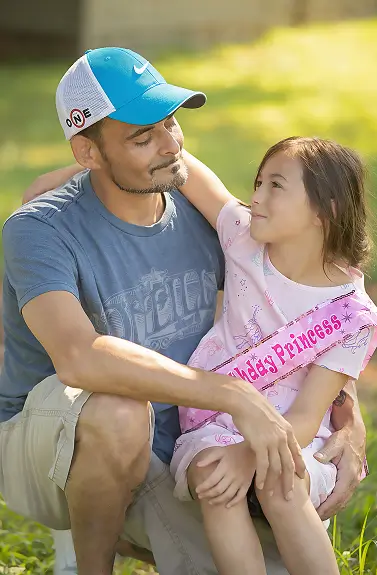I lost custody of my son during a time in my life when I was in active addiction. It was a dark and painful period, and the consequences were heavy—not just for me, but for my son and our family. Once I got into treatment and started rebuilding my life, I immediately began fighting to be part of my son’s life again.
As part of that effort, I requested hair follicle testing for both myself and the mother of my child. I complied and completed the test; she did not. Still, the court allowed her continued access and failed to hold her accountable, while I was forced to prove myself again and again.
For years, I was granted only limited visitation—just a few hours every Tuesday and Thursday. I was working in Washington, D.C. at the time and living in Harford County, so I would drive long distances twice a week, all while trying to maintain employment, stay active in my recovery, and raise my other children, whom I barely saw during that time. The logistics and emotional toll were overwhelming.
Despite the barriers, I remained committed. I surrounded myself with support—sponsors, friends in recovery, my pastor, and my wife, who is a nurse. I submitted letters of recommendation, went to counseling, and continued doing the next right thing. It still took years of hearings, petitions, and court appearances before I finally regained full custody of my son.
Even after that victory, I continued to face setbacks. The grandmother, who had prior custody, would allow the mother access to our son during her visitation weekends, despite my concerns and the court orders. Every time he returned from those weekends, there were new issues. He would go to school, talk to a guidance counselor, and CPS would be involved again—multiple times.
After years of fighting and trying to protect my son, I made one of the hardest decisions of my recovery: I voluntarily gave primary custody back to the grandmother. It broke me. I spoke with many men, families, mentors, and marriage counselors. I was tearing my household apart, and it was impacting my marriage and my other children. The constant battle drained every part of me.
I want to be clear—I didn’t give up. I made a decision based on love and long-term stability. And thankfully, today, I have a strong relationship with my son. He’s old enough now to understand what happened. He knows I fought for him. He knows the truth. And we’ve built a bond that no court ruling can take away.
But what happened in the family court system should not happen to anyone who is genuinely trying to do the right thing. The system was slow to acknowledge my progress, quick to penalize, and often turned a blind eye to violations when they came from the other side. It allowed a young child to choose the more lenient environment over a structured and loving home.
The stigma against recovery is real. And for fathers—especially those in recovery—the family court system can feel stacked against you, no matter how hard you work to turn your life around.
Today, I’m almost 14 years sober. I’ve built a life I’m proud of. I’m writing this anonymously not for attention, but because someone needs to say it: the system needs to change. Good fathers deserve better. Families deserve fairness. Recovery deserves respect.

